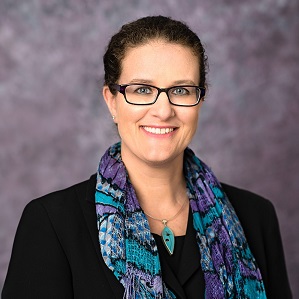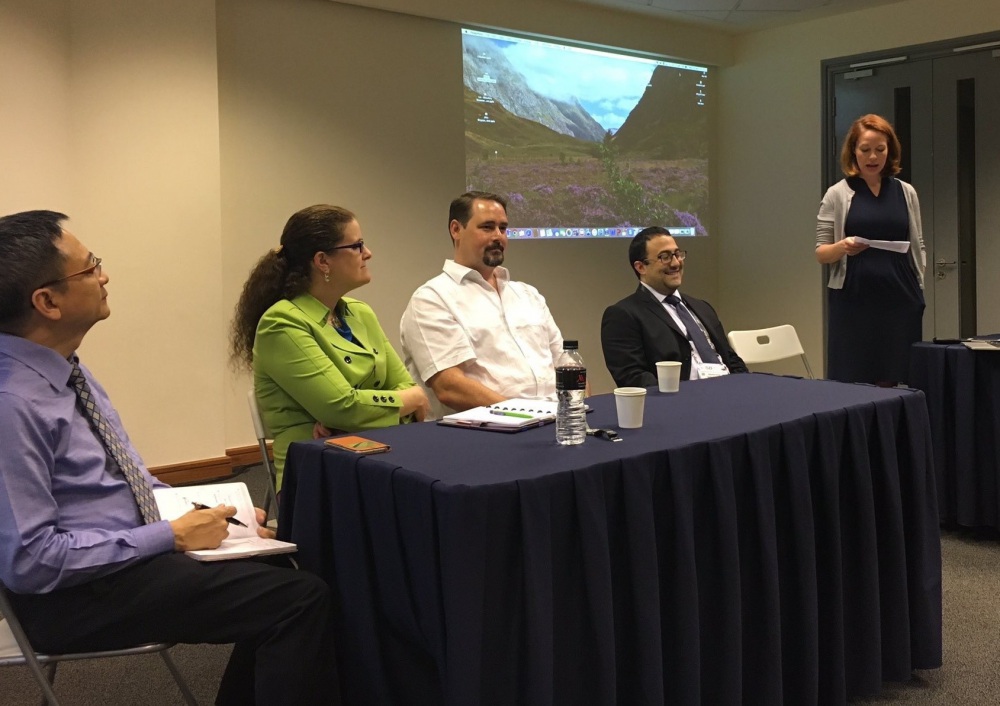
Atomic Pulse
Democratization of Synthetic Biology: Implications for Biosecurity and Pandemic Threats

Imagine a world in which biological systems can sustainably
produce individualized medicines or one in which it’s routine for kids to “code”
to produce their own organisms. That day
is approaching, and while society prepares for the promise that democratized
biology could bring, we must simultaneously develop global biosecurity and
safety norms that will reduce the risk of misuse and accidental release. The recent synthesis of the horsepox virus, a relative of the virus that causes smallpox, only underscores the urgency of this challenge.
In June in Singapore, scientists and
emerging leaders from 40 countries convened for the Seventh
International Meeting on Synthetic Biology (SB 7.0) to discuss the state of synthetic biology – a field
known for its focus on global challenges, democratization of science, citizen
engagement, and practice of open data and technology sharing. Synthetic biology holds major promise to
provide solutions for tough societal challenges, such as health security, food
security, energy security, and species conservation. While such
peaceful applications should be pursued, rapid
advances in technology will also increase the potential for deliberate misuse and accidental
release. The rapid globalization of the field portends
an urgent need for a global dialogue – led by innovators at the top of their disciplines
– to create biosecurity and safety norms.
Some have concluded that the best way to mitigate the risk that harmful
synthetic agents could be misused or accidentally released is to move even more
rapidly to create medical countermeasures response capability. Others have advocated for the urgent
consideration of novel approaches to global governance for synthetic
biology. The truth probably lies in the
pursuit of both paths, with a healthy, dedicated discussion between health and
security experts along the way.
My take is that the time is now for global leaders in
synthetic biology to build biosecurity culture into their plans for developing
the bioeconomy – from the bottom up.
And, simultaneously, the biosecurity community must understand that the
future of biosecurity also lies with research and innovation.
How can this be accomplished? For new multi-disciplinary initiatives, such as
Genome Project-write – as
well as other emerging global consortia – specific protocols could be
established to build biosecurity into designs and concepts for foundries (bio
factories) housed at major global institutions.
Such institutions could also prioritize biosecurity-by-design to
mitigate risk as new technologies and applications are developed. New technologies that decrease the likelihood
of misuse or accidental release should also be encouraged as an integral part
of these activities. And finally, as the
global architecture for synthetic biology is further developed and democratized,
the community would also be wise to create specific portals for engaging the
general public and developing standard, global norms that would be required for
“opting in” to citizen science projects of the future.
So, where do we go from here? Those involved with citizen science, such as
the emerging “bionet,” which was recently
launched as an open technology platform for exchanging biomaterials, as well as
academic and industrial consortia focused on synthetic biology solutions for
emerging global challenges, should take the opportunity now – while the field
is growing and expanding globally – to build in a biosecurity ethos that will
incentivize a future generation to consider such approaches as they are developing
new technologies and applications. By
coupling biosecurity with innovation, we can create a foundation that will
benefit the shared goals of both communities, which is, after all, about saving
and enhancing the quality of life for all people.
Stay Informed
Sign up for our newsletter to get the latest on nuclear and biological threats.
More on Atomic Pulse

NTI | bio Explores Ways to Enhance Disease Surveillance Through Next Generation DNA Sequencing
NTI | bio Explores Ways to Enhance Disease Surveillance Through Next Generation DNA Sequencing

Get to Know NTI: Aparupa Sengupta
Aparupa Sengupta, senior program officer for NTI’s Global Biological Policy and Programs team (NTI | bio), sat down with NTI’s Mary Fulham for the latest in Atomic Pulse’s “Get to Know NTI” series.

COVID-19 + Cybersecurity: Parallels and Lessons from a Pandemic
COVID-19 + Cybersecurity: Parallels and Lessons from a Pandemic
